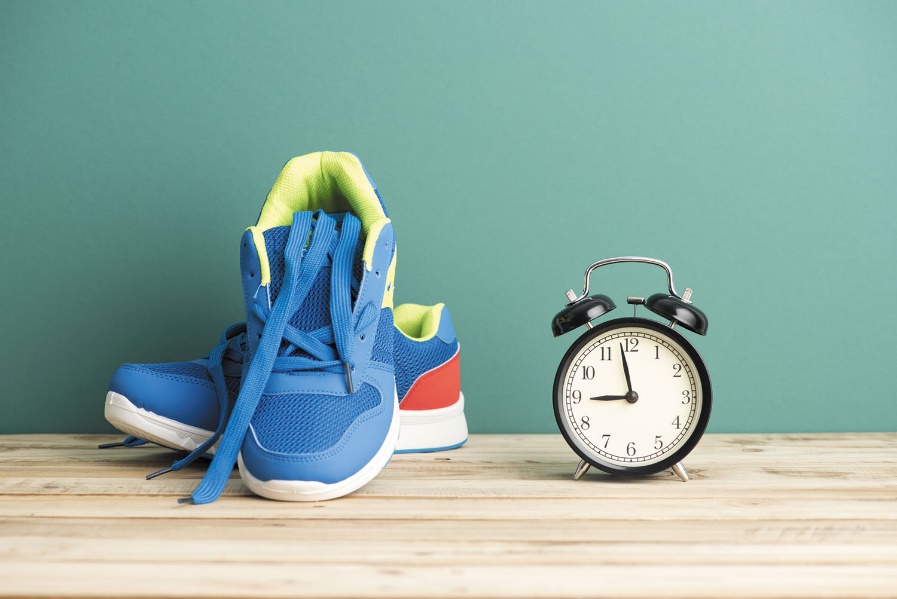Living with a short sleep gene: 'It's a gift'
"Without the commute, people have been able to sleep in, and when that changes they will take some time to adjust back to the new normal," said Dr. Bhanuprakash Kolla, a sleep medicine specialist in the Center for Sleep Medicine at the Mayo Clinic in Rochester, Minnesota.
Night owls may find it especially hard to return to an early morning awakening, so "If work schedules are flexible, then develop a plan for a later work start time," said sleep specialist Kenneth Wright, a professor of integrative psychology at the University of Colorado Boulder.
If that's not possible, a few weeks before your return to work start date, roll back your bedtime by 15 minute intervals and set the wake-up alarm for 15 minutes earlier each day until you reach your goal, said Rebecca Robbins, an associate scientist at Brigham & Women's Hospital who studies sleep.
"Fifteen minute increments is recommend because that's enough to move in the direction of a new time zone, a new work schedule or what have you without being too disruptive," said Robbins, who is an instructor in medicine at Harvard Medical School.
"Unfortunately we can't move our sleep schedules in a large way from one day to the next and hope to be just fine," she added. "It does take time, and so be patient." Here are five additional tips to more easily transition your sleep schedule.
1. Establish a consistent time to go to sleep and wake
Having set times to go to sleep and wake up is essential to getting your sleep back on track, said sleep specialist Dr. Raj Dasgupta, an assistant professor of clinical medicine at the Keck School of Medicine at the University of Southern California.
It's important to go to bed and rise at the same time every day, even on weekends or any days you might still work from home, experts told CNN. Having an irregular sleep schedule is associated with major health problems, including cardiovascular disease, obesity, diabetes, dementia, mood disorders and immune dysfunction, according to studies.
"Set your alarm in the morning, and don't hit that snooze button," Dasgupta advised. "Try your best to get out of bed when your alarm goes off and try to get outside, especially if the weather is good and there is a lot of sunshine in the morning. This will allow suppression of melatonin and reset that circadian rhythm."
2. Avoid sleep killers
There are lots of bad habits that can interfere with quality sleep. Drinking beer, wine or liquor before bed is a guaranteed buzzkill for good sleep, because it metabolizes in the middle of the night and will wake you up.
Another pattern to avoid is using the bedroom to watch television or work. You want to train your brain to expect sleep when you enter your bedroom, so the bed is only for sleeping and sex, Dasgupta said.
"This means don't bring your laptop into bed, and put that cell phone away," he said. "No more 'working from bed.' If you can't sleep once you're in bed, the general rule of thumb is to not spend more than 20 minutes tossing and turning.
"Instead, get out of bed and do something relaxing in very low light, and then head back to bed only when you are ready to fall asleep," he added.
Avoid stimulants such as nicotine, coffee, black or green tea, and sodas after midafternoon, especially if you have insomnia, experts said. Spicy foods may also disrupt your tummy -- and therefore your sleep.
Make sure your bed and pillows are comfortable, and the room is cool: Between 60 and 67 degrees Fahrenheit is best.
3.Start preparing for bed an hour before you want to sleep
Relaxation is another key to falling asleep easily. That's why it's important to close your laptop, put away your smartphone, shut off the TV and take some time to let go of the day's stresses.
"In the evenings, have a wind-down routine for you and your family," Dasgupta said. "It can involve things like reading, stretching, meditating or doing a puzzle with the family. Be sure to have a consistent time to turn down those lights and keep the bedroom cool, quiet and dark."
4. No more random napping
If you've been enjoying daylight naps during pandemic, it's time to put that habit aside. Now that you are trying to have a consistent bedtime, experts say you should nap only if you are sleep deprived.
"If you must nap, make it a 'power nap' which is a short and sweet nap that lasts 15 to 20 minutes and occurs between the hours of noon and 2 p.m. when most of us get that feeling of fatigue and sleepiness," Dasgupta said.
And if you are suffering from coronasomnia, "then napping is definitely not the answer to your problems. It can actually make your insomnia worse by reducing the drive to sleep at night," he added.
5. Exercise
For many, it wasn't easy to prioritize exercise during the pandemic -- just juggling all the stress while figuring out how to work or do school from home was exhausting. Now that things are getting better, Dasgupta said, it's time to put exercise on your daily schedule.
"Exercising improves sleep by reducing sleep onset, meaning it takes less time to fall asleep and decreases the amount of time you are lying in bed awake during the night," he said.
How exercising can affect sleep
If you've suffered from coronasomnia (or had insomnia before the pandemic), studies have shown that moderate physical exertion "enables individuals with insomnia to fall asleep faster, sleep longer, and enjoy better sleep quality than they did before exercising," he added.
When should you exercise? When it's convenient for you, experts say. Many people swear by morning exercise as a way to jump-start the brain and fill the body with feel-good endorphins for the day.
"Traditional sleep hygiene dictates that intensive exercise during the three-hour period leading up to sleep can negatively impact sleep ... because it can increase your heart rate, body temperature, and adrenaline levels," Dasgupta said.
But some studies have found no issue with later exercise, he added, "as long as you avoid vigorous activity for at least one to two hours before bedtime."
Source: https://edition.cnn.com/
Santegra® products Sleemil™ and Passion Flower help to relax and improve sleep.








